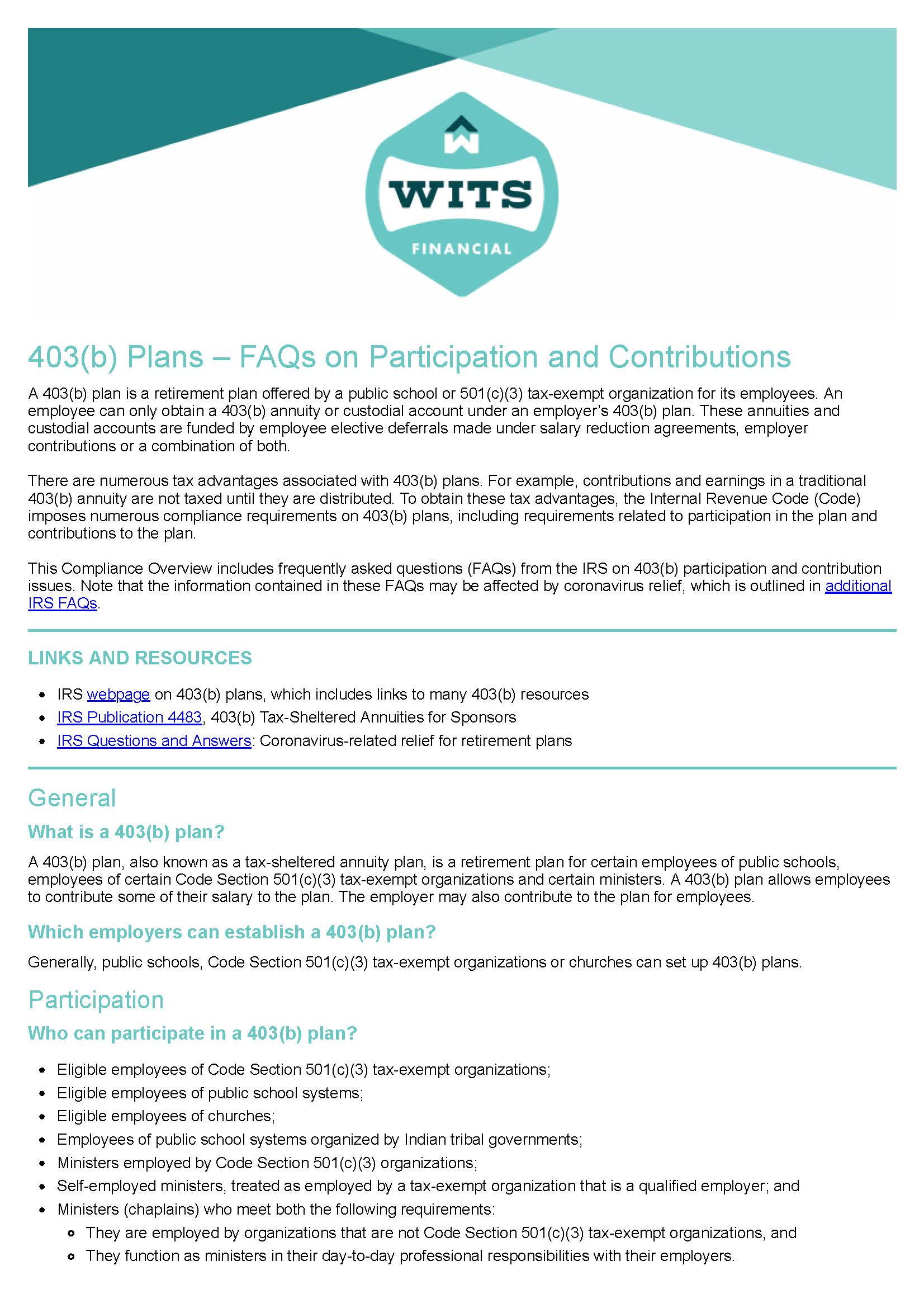A 403(b) plan is a retirement plan offered by a public school or 501(c)(3) tax-exempt organization for its employees. An employee can only obtain a 403(b) annuity or custodial account under an employer’s 403(b) plan. These annuities and custodial accounts are funded by employee elective deferrals made under salary reduction agreements, employer contributions or a combination of both.
There are numerous tax advantages associated with 403(b) plans. For example, contributions and earnings in a traditional 403(b) annuity are not taxed until they are distributed. To obtain these tax advantages, the Internal Revenue Code (Code) imposes numerous compliance requirements on 403(b) plans, including requirements related to participation in the plan and contributions to the plan.
This Compliance Overview includes frequently asked questions (FAQs) from the IRS on 403(b)participation and contribution issues. Note that the information contained in these FAQs may be affected by coronavirus relief, which is outlined in additional IRS FAQs.
We Make it Easy
Let us take the stress out of managing employee benefits.
Schedule a Call
We’ll ask a few questions, review your current benefits and determine your goals.
Let us Do the Leg Work
Based on your needs and budget, we’ll research all available options and help you select the right plan for your employees and your business.
Bask in the Glory
When you’re confident due diligence has been done, and you’ve selected the right plan it’s time to sit back and relax - or get to everything else on your list.
